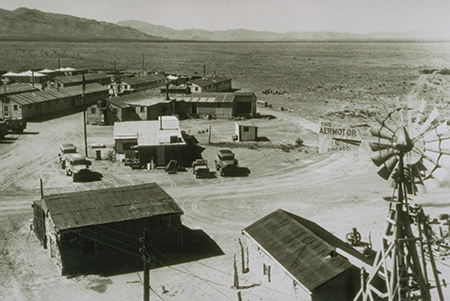"The Arms Control Association’s work is an important resource to legislators and policymakers when contemplating a new policy direction or decision."
Republican Spending Bill Revives Program for Radiation Victims
July/August 2025
By Daryl G. Kimball
A massive federal tax and spending bill signed into law July 4 includes a provision that would extend and expand the 1990 Radiation Exposure Compensation Act, (RECA), which aided many downwinders exposed to fallout from U.S. nuclear testing and uranium miners in key states.

The bill was approved 51-50 by the Republican-led U.S. Senate July 1 and 218-214 by the Republican-led House of Representatives July 3.
In 2023, a bipartisan Senate majority passed legislation that would have broadened the coverage of the RECA program to include additional victims of Cold War-era nuclear testing fallout and radiation exposure who have contracted certain forms of cancer. But the House Republican leadership refused to allow the measure to come to a vote citing cost concerns. (See ACT, September 2023.) As a result, the law authorizing the program expired. (See ACT, July/August 2024.)
The new legislation would extend RECA through 2028 and expand the program to additional areas downwind from locations where atmospheric U.S. nuclear testing took place, to people affected by contamination from uranium mining through 1990, and to some communities adjacent to Cold War-era nuclear weapons production sites in certain states, including in Missouri, Tennessee, Kentucky, and Alaska.
For the first time, qualified downwinders in New Mexico, the site of the very first nuclear bomb test, code-named Trinity, July 16, 1945, would be eligible for federal assistance.
Also covered are qualified nuclear test downwinders from all counties in Utah. Meanwhile, the downwind area in Arizona would be expanded to include all of Mohave County, but coverage in Nevada would remain the same, meaning that downwinders in the city of Las Vegas would not be covered.
Updated atmospheric modeling of the Trinity explosion, as well as the 100 other above-ground nuclear test explosions at the Nevada Test Site, show that the radioactive fallout spread across much of the North American continent.
Under the revised RECA plan, downwinder eligibility dates would be extended through November 1962. Atmospheric nuclear testing was prohibited by the 1963 Limited Test Ban Treaty. Compensation for qualified downwinders and onsite participants would be increased to $100,000 from $50,000. The Congressional Budget Office estimates that the program could cost a total of $7.7 billion.
Republican leadership support for including the RECA program in their controversial spending bill was due in part to Sen. Josh Hawley (R-Mo.), who was considered a key swing vote on the overall legislation. In 2023, Hawley joined with Sen. Ben Ray Luján (D-N.M.) and other members of Congress who have long been champions of the RECA expansion effort.
Hawley’s support was motivated by constituent pressure and an Associated Press investigation of the unresolved concerns about radioactive and toxic contamination of St. Louis-area communities from past uranium processing and waste operations. The concerns dated back to the 1942 Manhattan Project nuclear bomb-making enterprise.
Contamination and exposures caused by other former nuclear weapon production sites in states such as Ohio, New York, Pennsylvania, and Washington would not be covered in the new RECA legislation.
In addition to the RECA provision, the massive tax cut and domestic policy bill will affect Medicaid benefits to tens of millions of lower income beneficiaries and add an estimated $3.3 trillion to the U.S. national debt.
